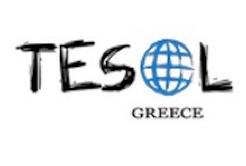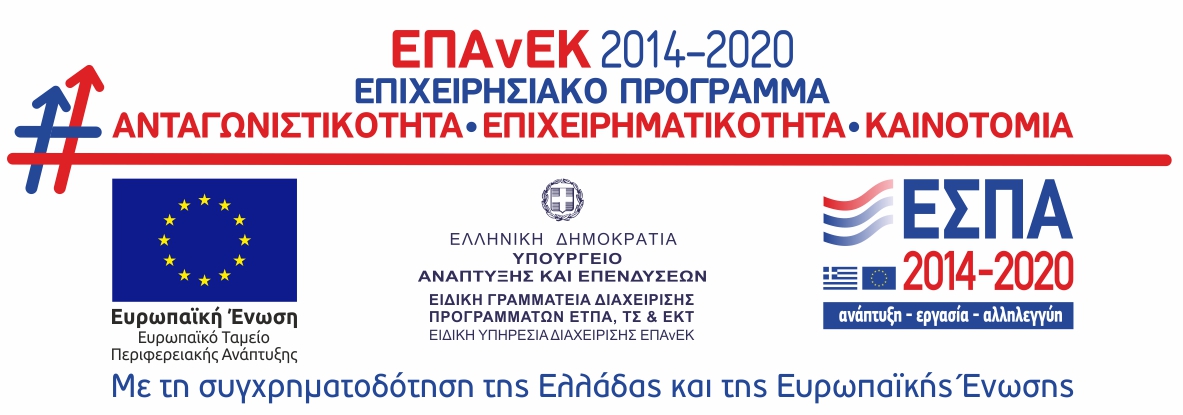Originally published in issue 126, April-June 2015, of the TESOL Greece Newsletter
Using Wiki in EFL Contexts
Wikis are one of the tools under the umbrella of Web 2.0 technologies which allow users to become creators of online content instead of only being consumers of information as they were in Web 1.0. At its core, a wiki is a blank user-defined web space that can display a variety of media, such as text, graphics, web links, and links to audio or video. Wikis are extremely flexible, and Rosen and Nelson (2008) claimed that “wikis are the premier tool for collaboration” (p.217). Hogg and Lomicky (2012) suggested that incorporating Web 2.0 tools such as wikis into education can enhance learning through increased student interaction.This is because using collaborative tools allows each student to become involved and contribute, which is often not possible during class time when the teacher feels pressed to move forward. Yet despite the near-ubiquitous recognition of sites such as Wikipedia, many teachers and learners are unaware of how wikis can be used in teaching English to speakers of other languages.
Wikis in EFL.
Wikis are being used effectively in a variety of English as a Foreign Language (EFL) contexts across different age groups and language levels. Wichadee (2010) used wikis to help support college EFL learners’ summary writing skills by having groups collaboratively produce and revise short summaries. Lee and Wang (2013) used wikis for EFL students to work in groups to collaboratively build a picture book learning resource. Mak and Coniam (2008) used wikis positively with B2-level middle school students to work in groups and create brochures about their school. Wang (2014) cited research stating that “wikis help to create an innovative learning environment where students [are] interested and engaged in the learning process” (p. 384).Gütl, Chang, Edwards, and Boruta (2013) used wikis and other computer-assisted language learning (CALL) tools to extend learning beyond the classroom walls.There is a wealth of wiki use in EFL literature, and teachers who want to use online learning tools effectively in their practice can devise ways to incorporate wikis that will benefit their own language learners.
Limitations.
As with any new learning tool, there are some limitations to using a wiki. Kear, Donelan, and Williams(2014) noted that learners should have a level of familiarity and confidence using wikis to make the learning more effective, and both teachers and students should practice multiple times to achieve effective tool use to support learning. Also, while creating a collaboratively produced text may seem one of the more meaningful uses of a wiki, it is also one of the most difficult to achieve. Adyin and Yildiz (2014) observed that learners’ ideas about text ownership or perceived lack of expertise or authority to edit a peer’s text might mean only superficial or formatting changes are made instead of deeper, meaning-related changes. Kear et al. (2014) echoed this sentiment suggesting also that a lower level of comfort with the peer group can mean learners are reluctant to revise or edit each other’s work. Godwin-Jones (2012) emphasized that online tools are not culturally neutral and that societal beliefs about the role of collective versus individual work and expectations can impact how willing students are to work with many online tools.
Overcoming limitations.
Several strategies and techniques can be used to help overcome the limitations associated with wiki use. Firstly, to attenuate the learning curve associated with using any online tool, low-stakes activities and formative work should be favored until the learners can focus on the learning activity itself and not worry about the mechanics of the tool. In other words, more “contributive” tasks can be used in the beginning, where all students are adding elements to the same page or to individual pages to demonstrate the concepts or skills. Also, using “ice breaker” and team building activities before introducing students to a wiki may create a more collaborative atmosphere where learners feel more open both to having their writing edited and to editing others’ writing. Lastly, teachers often support that using open-ended instructions gives learners the freedom to express themselves, but in some cases – and especially when working in an unfamiliar environment – learners may not know which direction is the “right” one to go in. Until learners build their own expertise working with wikis, a clear structure for the wiki and explicit instructions help more than open-ended tasks.Clear instructions give learners a sense of direction for the particular activity and a clear understanding of what outcome is expected.
Wiki activities and practical examples
There are a multitude of low-stakes activities to choose from to begin using a wiki in English language learning. A good starting point is to determine what students should understand, produce, or investigate that can visually show English language production and development, in other words, why the wiki is being created. This could be: a concept (e.g. progressive tenses, the passive voice), target vocabulary (e.g. animals, favorite things, a city, hobbies, professions, academic vocabulary), an individual (e.g. someone from history, a celebrity, family member), or a process (e.g. how to make a particular dish) just to name a few. For example, using a wiki is an effective way for undergraduate EFL learners to differentiate the concepts of popular literature and scholarly literature, a cornerstone for building academic English skills. Students can find an image and produce their own definition for each type of literature to add to a wiki outside of class time. They could be asked to share their definitions orally in class, but certainly the class would discuss which type is appropriate for undergraduate studies and why. Conversely, the teacher could give definitions of these two concepts to the class orally in less than two minutes, including an explanation of which is appropriate for college and why, but that may not have any relevance for students who might soon forget about both. Through the wiki activity, however, learners are constructing their own meaning of the two concepts, and this construction is more likely to have a lasting impact on learning.
After thinking about what kind of learning can be supported using a wiki, the teacher should determine the who, where, what, and when of students’ contributions. Students may contribute individually, each to a separate page or to one wiki page the whole class will use. Also, pairs or groups may have their own wiki to work on for a group project. Teachers should next decide the form that the evidence of learning or understanding will take. For example, learners could contribute a photo with a written description underneath, a definition, a story, a song, a collage, a video/audio link, a chart or a graph. The teacher must determine what the students can show in the wiki that will constitute evidence of learning and how many times they should contribute (e.g. just once, twice, weekly). Lastly, when writing the instructions for the wiki, it is important to begin with procedural text. The procedural text gives the “nuts and bolts” instructions of using the online tool (e.g. Click on Edit Wiki Content, Click on Submit). Beginning with the prompt and assuming that learners will know how to navigate the tool without providing explicit directions can lead to confusion and frustration. The prompt for the wiki should also be clear and explicit (e.g. Add one image and 8-10 sentences to describe your favorite pastime using at least 3 of the words or phrases from Unit 2).When instructions are clear and learners can easily understand what is expected of them, they are more likely to participate and to have a positive attitude toward the whole process.
Bringing the wiki back into class time is important for it to have a lasting impact on learning. If students are asked to contribute to a wiki outside of class, and the wiki is never mentioned again, they may wonder what the point of it was. They may conclude that the information they contributed to the wiki was not important for them to know or understand. Connecting the wiki activity back to class time will depend on how and why the wiki was set up. If students have each built wiki pages with their own information on a particular topic, they can be asked, for example, to present their wiki orally in class or answer questions about their information. A class wiki might be used as scaffolding for further course work. For instance, a simple cause/effect or for/against table in a wiki can act as scaffolding for student composition writing. Images posted on a wiki can be used as prompts for class discussion. From a previous example, the wiki images of popular or scholarly sources can be discussed to generate ideas about how they differ and why one type is more suitable for academic work. Above all, it is important that the wiki be connected back to class time so that students see how working with online tools can contribute directly to their learning rather than being an “extra.”
In conclusion, wikis are being used in a variety of language learning contexts and are among the more versatile tools for collaboration and demonstration of learning. Prompts and activities can be generated for many different language learning levels. The instructor must take into account the students’ level, familiarity with each other and with the tool, and evidence of learning that can be visually demonstrated using a wiki. Starting with a more low-stakes wiki activity can be helpful until both instructor and students are more comfortable with the tool. Lastly, things may not go smoothly the first time, but with practice, wikis can be an effective addition to a teacher’s online toolbox.
Wiki Resources
- Coursesites (a free version of Blackboard) www.coursesites.com
- Moodle (a free, open-source learning platform) https://moodle.org
- PBworks(some free wiki features)http://www.pbworks.com/educationl.html
References
Aydin, Z., &Yildiz, S. (2014). Using wikis to promote collaborative EFL writing. Language Learning & Technology, 18(1), 160-180. Retrieved from http://llt.msu.edu/issues/february2014/aydinyildiz.pdf
Godwin-Jones, R. (2012). Emerging technologies: Challenging hegemonies in online learning. Language Learning and Technology, 16(2), 4-13. Retrieved from http://llt.msu.edu/issues/june2012/emerging.pdf
Gütl, C., Chang, V., Edwards, A., &Boruta, S. (2013). Flexible and affordable foreign language learning environment based on Web 2.0 technologies. International Journal of Emerging Technologies In Learning, 8(2), 16-28. doi:10.3991/ijet.v8i2.2488
Hogg, N., &Lomicky, C. S. (2012). Connectivism in postsecondary online courses: An exploratory factor analysis. Quarterly Review of Distance Education, 13(2), 95-114.
Kear, K., Donelan, H., & Williams, J. (2014). Using wikis for online group projects: Student and tutor perspectives. International Review of Research in Open & Distance Learning, 15(4), 70-90.
Lee, H., & Wang, P. (2013). Discussing the factors contributing to students' involvement in an EFL collaborative wiki project. ReCALL : The Journal of EUROCALL, 25(2), 233-249. doi: 10.1017/S0958344013000025
Mak, B. &Coniam, D. (2008). Using wikis to enhance and develop writing skills among secondary school students in Hong Kong, System, 36(3), 437-455. doi: 10.1016/j.system.2008.02.004
Rosen, D., & Nelson, C. (2008). Web 2.0: A new generation of learners and education. Computers in the Schools, 25(3-4), 211-225. doi: 10.1080/07380560802370997
Wang, Y. (2014). Using wikis to facilitate interaction and collaboration among EFL learners: A social constructivist approach to language teaching, System, 42, 383-390. doi:10.1016/j.system.2014.01.007
Wichadee, S. (2010). Using wikis to develop summary writing abilities of students in an EFL class. Journal of College Teaching and Learning, 7(12), 5-10.
Author bio:
Susan Stetson-Tiligadas has over 20 years of language teaching experience and for the past nine years has worked at DEREE-The American College of Greece, where she teaches courses in English for Academic Purposes. Susan is completing a PhD in Instructional Design for Online Learning and is involved with the creation of blended learning opportunities and online teacher training at the college. tiligadas@acg.edu











